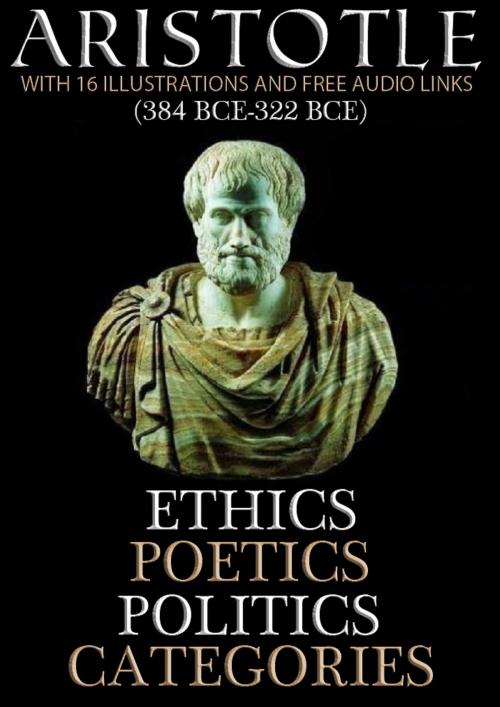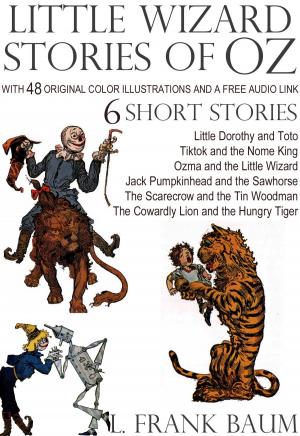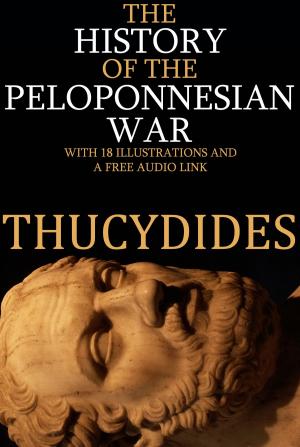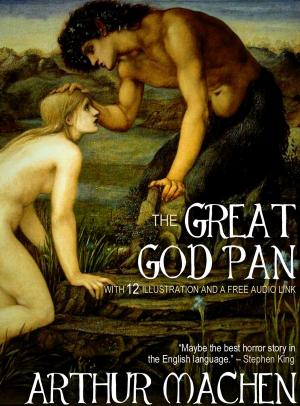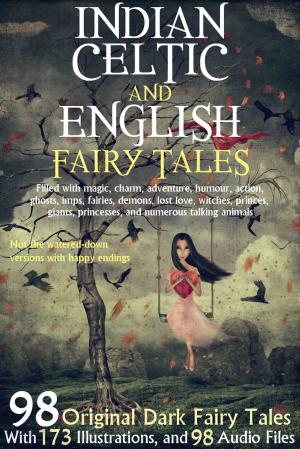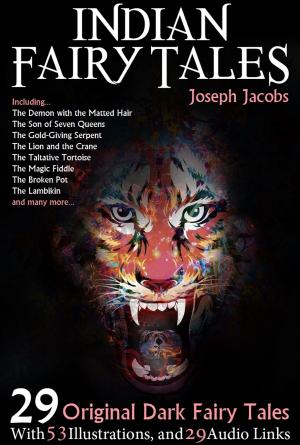Ethics, Poetics, Politics, and Categories: With 16 Illustrations and Free Audio Links.
Nonfiction, History, Greece, Fiction & Literature, Literary Theory & Criticism, Ancient & Classical, Religion & Spirituality, Philosophy, Ancient| Author: | Aristotle | ISBN: | 1230002410067 |
| Publisher: | Red Skull Publishing | Publication: | July 5, 2018 |
| Imprint: | Language: | English |
| Author: | Aristotle |
| ISBN: | 1230002410067 |
| Publisher: | Red Skull Publishing |
| Publication: | July 5, 2018 |
| Imprint: | |
| Language: | English |
Aristotle was a Greek philosopher and scientist born in the Macedonian city of Stagirus, in 384 BCE. His writings cover many subjects – including physics, biology, zoology, metaphysics, logic, ethics, aesthetics, poetry, theatre, music, rhetoric, linguistics, politics and government – and constitute the first comprehensive system of Western philosophy.
Aristotle was the pupil of Plato, and went on to teach Alexander the Great.
Here we find four of his famous books in one omnibus edition.
ETHICS
Aristotle first used the term “Ethics” to name a field of study developed by his predecessors Socrates and Plato. Philosophical ethics is the attempt to offer a rational response to the question of how humans should best live.
POLITICS
Aristotle regarded Ethics and Politics as two related but separate fields of study, since ethics examines the good of the individual, while politics examines the good of the city-state.
POETICS
Aristotle’s Poetics is the earliest surviving work of dramatic theory and the first extant philosophical treatise to focus on literary theory. In it, Aristotle offers an account of what he calls “poetry” – a term which in Greek literally means “making” and in this context includes drama—comedy, tragedy, and the satyr play—as well as lyric poetry, epic poetry, and the dithyramb – a song sung to praise Dionysus, the God of wine and fertility.
CATEGORIES
The Categories is a text from Aristotle’s Organon that enumerates all the possible kinds of things that can be the subject or the predicate of a proposition. They are perhaps the single most heavily discussed of all Aristotelian notions. The work is brief enough to be divided, not into books as is usual with Aristotle’s works, but into fifteen chapters. The Categories places every object of human apprehension under one of ten categories.
Highlights of this edition are:
* It has four of Aristotle’s books in one omnibus edition.
* Free online audio files – downloadable. (The audio link only works on the Kobo’s Android and iOS apps).
* 16 illustrations and photos.
* It is formatted for ease of use and enjoyment on your kobo reader.
* An active (easy to use) Table of Contents listing every chapter accessible from the kobo menu.
* Plus About the Author section.
* 1047 pages in the kobo format.
This book is unabridged and appears as it was first intended.
Aristotle was a Greek philosopher and scientist born in the Macedonian city of Stagirus, in 384 BCE. His writings cover many subjects – including physics, biology, zoology, metaphysics, logic, ethics, aesthetics, poetry, theatre, music, rhetoric, linguistics, politics and government – and constitute the first comprehensive system of Western philosophy.
Aristotle was the pupil of Plato, and went on to teach Alexander the Great.
Here we find four of his famous books in one omnibus edition.
ETHICS
Aristotle first used the term “Ethics” to name a field of study developed by his predecessors Socrates and Plato. Philosophical ethics is the attempt to offer a rational response to the question of how humans should best live.
POLITICS
Aristotle regarded Ethics and Politics as two related but separate fields of study, since ethics examines the good of the individual, while politics examines the good of the city-state.
POETICS
Aristotle’s Poetics is the earliest surviving work of dramatic theory and the first extant philosophical treatise to focus on literary theory. In it, Aristotle offers an account of what he calls “poetry” – a term which in Greek literally means “making” and in this context includes drama—comedy, tragedy, and the satyr play—as well as lyric poetry, epic poetry, and the dithyramb – a song sung to praise Dionysus, the God of wine and fertility.
CATEGORIES
The Categories is a text from Aristotle’s Organon that enumerates all the possible kinds of things that can be the subject or the predicate of a proposition. They are perhaps the single most heavily discussed of all Aristotelian notions. The work is brief enough to be divided, not into books as is usual with Aristotle’s works, but into fifteen chapters. The Categories places every object of human apprehension under one of ten categories.
Highlights of this edition are:
* It has four of Aristotle’s books in one omnibus edition.
* Free online audio files – downloadable. (The audio link only works on the Kobo’s Android and iOS apps).
* 16 illustrations and photos.
* It is formatted for ease of use and enjoyment on your kobo reader.
* An active (easy to use) Table of Contents listing every chapter accessible from the kobo menu.
* Plus About the Author section.
* 1047 pages in the kobo format.
This book is unabridged and appears as it was first intended.
